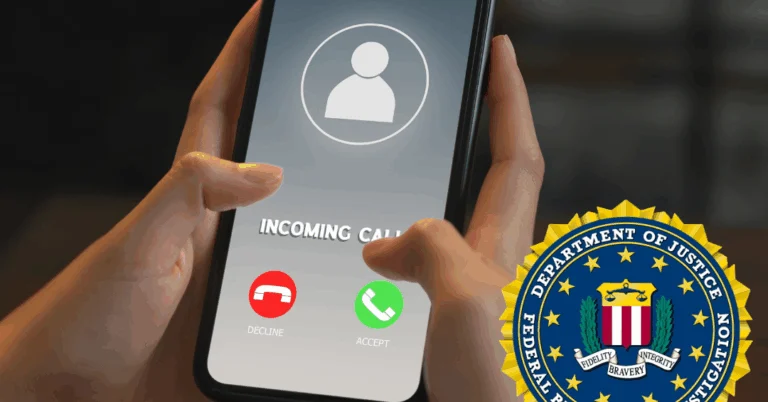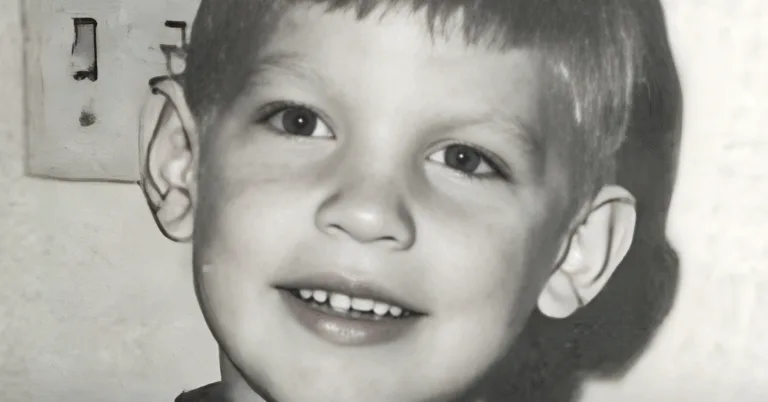If you have an Amazon Echo, there’s a quiet change happening in your home — and it’s not just a software update. It affects every talk, every command, and every small comment you’ve ever made near Alexa.
Amazon has made a choice that changes how its smart assistant listens to your voice. And no, you can’t turn it off. What’s really going on? Why are some people calling it a betrayal — and what does it mean for your privacy? Let’s just say, after you learn the details, you might never talk to Alexa the same way again.
From Smart Device to Spy? A Setting Vanishes Without Warning
For years, Echo users had one small bit of control: a setting hidden deep in the Alexa app that let them say “No” to sending their voice recordings to Amazon’s cloud. It wasn’t easy to find, and very few people used it — less than 0.03% of Echo owners, according to Amazon — but it existed. It was a small way to protect your privacy in a smart home. As of March 28, that option is gone.
Amazon quietly removed the “Do Not Send Voice Recordings” setting, which now means every word you say after Alexa’s wake word is sent to Amazon’s servers. Not just to work properly, but also — let’s be honest — to help train their AI systems. Even if you don’t plan to buy Alexa’s new upgrade, Alexa Plus, your voice is still being sent to them.
What makes this worse is how it happened. There was no big warning. People found out through emails, hidden support articles, or by noticing their privacy menu had one less option. And just like that, your voice assistant turned from a helpful tool into a cloud-connected listener — on purpose.

What All Echo Devices Must Do Now
So, what’s changed? In short: now every Echo device must send your voice recordings to Amazon’s servers, whether you want it to or not. And no — turning off a few settings won’t stop it.
Before, there were two important privacy options hidden in the Alexa app: “Do Not Send Voice Recordings” and “Do Not Save Voice Recordings.” The first one was special — it stopped your device from sending your voice to Amazon’s cloud at all. That option is now gone. Deleted. Disappeared.
What’s left is the “Don’t Save Recordings” option. It sounds good, but it has limits. Yes, you can stop Amazon from keeping your recordings for a long time — but every single command still goes to the cloud before it’s deleted. That means Amazon still hears everything, even if they promise not to keep it.
And it doesn’t matter what you’re using Alexa for — playing music, checking the weather, or just joking around. The moment you say the wake word, your words are sent to Amazon’s servers. You won’t see it, you won’t hear it, but your data is moving in real time to servers built to listen, learn, and — let’s be honest — make money.

Why Amazon Made the Change
Amazon didn’t suddenly decide to get nosier for no reason. This change is about getting ready for Alexa Plus, a paid, AI-powered upgrade that’s supposed to turn your smart assistant from basic to almost mind-reading.
With Alexa Plus, Amazon is putting a lot of hope in generative AI — a smarter system that can have more natural conversations, understand you better, and even guess what you might need. But to do that, it needs one thing: huge amounts of voice data. Real voices, in real homes, with all the messy, unpredictable ways people actually speak.
In Amazon’s own words, the company wants to “expand Alexa’s abilities using generative AI features that depend on the power of Amazon’s secure cloud.” In simple terms: the little computer inside your Echo isn’t enough anymore. To make Alexa Plus work, your voice needs to go straight to Amazon’s servers — no shortcuts, no exceptions.
And of course, there’s a money side to this too. Alexa has had a hard time making a profit for years. Alexa Plus, which will cost $20 a month (or free for Prime members — for now), is Amazon’s big plan to turn Alexa into a business that makes money. And when money and privacy clash in Silicon Valley, well… privacy usually loses.
Where Does Your Voice Data Go?

Let’s be clear: the moment Alexa hears its wake word, your voice isn’t just yours anymore. From that second, everything you say is sent to Amazon’s cloud, where it’s checked, processed, and (hopefully) deleted. But what really happens in between?
Amazon says all recordings are protected while traveling to their servers. Once they arrive, though, the data is unlocked so Alexa — or really, Amazon’s AI — can understand what you said. The company promises that if you turn on the “Don’t Save Recordings” option, your voice commands are deleted after being processed. Sounds nice… but how long is “after”?
And here’s the thing — Amazon’s history isn’t perfect. In 2019, they admitted that real people listened to some Alexa recordings — sometimes thousands in one shift — to help improve accuracy. Those recordings included everything from boring commands to very private, personal moments. Then in 2023, Amazon was fined $25 million for illegally keeping voice recordings from children’s Echo devices.
So when Amazon says “trust us,” their past tells a different story.
Even though they say these recordings are used to make Alexa smarter, it’s hard to ignore that it’s your voice helping them improve a product you’re also paying for… maybe at the cost of your own privacy.
What You Lose If You Say No
The first thing to be affected? Voice ID — the feature that lets Alexa know who’s speaking and give personal replies. Want Alexa to play your playlists, show your calendar, or remind you to take your vitamins instead of your roommate? That only works if Amazon keeps your voice recordings.
If you turn off voice saving, Alexa suddenly forgets who you are. Personalized features stop working. The assistant becomes more basic and less helpful. And with the new Alexa Plus upgrade — which depends even more on recognizing voices — saying no to recording storage breaks a big part of what your Echo can do.
In simple terms, Amazon built a system where keeping your privacy means losing useful features. Yes, you can still use your Echo — but it’ll feel limited and frustrating, pushing you to give up and turn those settings back on. It’s not just about taking away options — it’s about making it harder to say no.
The Reaction: People Speak Up
It didn’t take long for people online to react. From Reddit to Facebook, longtime Echo users shared their anger—and they were very clear. Some said Amazon broke their trust. Others said it was a trick, like changing the rules after people already bought the device. One Reddit user said, “Glad I stopped using it five years ago.” Another said, “You should get rid of your Amazon Echo.”
Many people said Amazon isn’t just taking away a feature — they’re taking away a choice. And that hurts the most. At a time when tech companies are watched closely for how they handle personal data, Amazon’s move feels like it goes against being open and giving users control.
Critics also worry bigger: if privacy settings can be taken away after the fact, what stops other companies from doing the same? Smart homes work because people trust they’re safe, not spying. But for many users, this change broke that trust.
Amazon has already been fined for mishandling kids’ data and letting people secretly listen to recordings. The timing of this change is bad. Instead of gaining people’s trust, Amazon gave more reasons to doubt—and made privacy-focused users think about leaving Alexa for good.
How to Reduce Alexa’s Data Tracking
If you’re not ready to give up your Echo yet, there are still ways to limit how much Amazon can access your personal information. Here’s how to protect your privacy when using Alexa:
-
Turn on “Don’t Save Recordings”
This setting deletes your recordings soon after they’re processed. It won’t stop them from being sent to the cloud, but it helps reduce long-term storage. -
Set Up Automatic Deletion
In the Alexa Privacy Dashboard, you can choose to delete voice recordings every 3 or 18 months. This doesn’t delete recordings right away but limits how long Amazon keeps them. -
Mute the Microphone When Not Using Alexa
Each Echo has a microphone button. Press it to stop Alexa from listening. When the mic is off, nothing is recorded or sent to Amazon. -
Turn Off Voice Purchasing
You can disable buying things with your voice in the Alexa app or add a confirmation code. This helps stop accidental or wrong purchases. -
Check and Limit Alexa Skills
Some third-party Alexa skills can use your data. Check which ones you have enabled and what permissions they have. If you don’t use a skill, turn it off to keep your data safer.
By doing these things, you can keep enjoying Alexa’s help while protecting your privacy. Remember to check your settings often to stay in control.
When Easy Comes With a Price
Alexa used to feel like a helpful digital roommate. Now, it feels more like a nosy neighbor who’s always watching—and sending everything back to Amazon. When Amazon quietly took away important privacy controls, it wasn’t just a small update. It was a moment that makes us think about what we’ve given up for convenience.
Yes, Alexa can still play your favorite songs or tell you the weather. But every time you talk to it, you’re feeding a much bigger system that listens, learns, and grows from your private home moments. The technology might be smart, but the privacy side is unclear and worrying. When privacy becomes something you have to pay for instead of getting automatically, something important is lost.
This story isn’t just about Echo devices or smart assistants. It’s about who controls your data, who gives up control, and if we are okay with that trade. Because when your voice becomes data, what you say matters more than ever.



